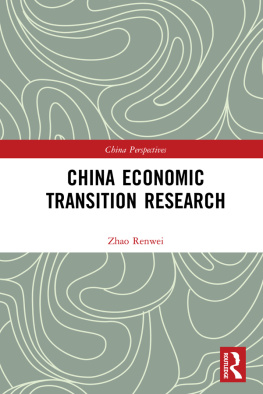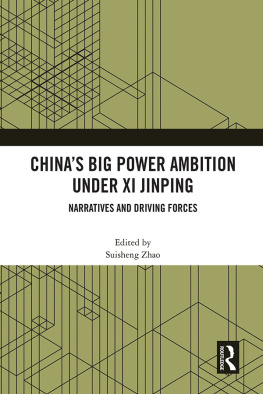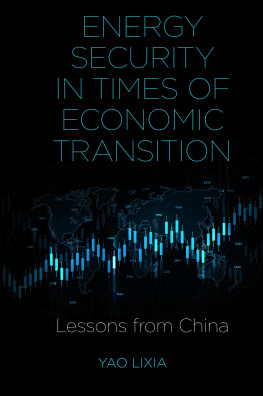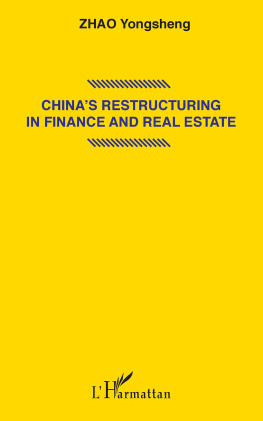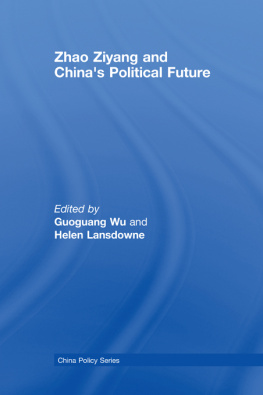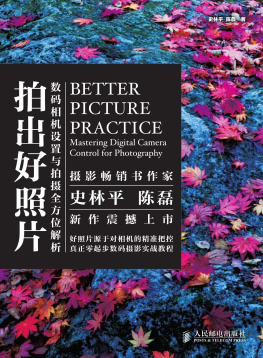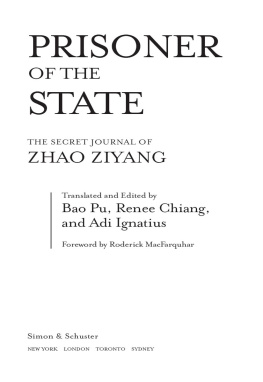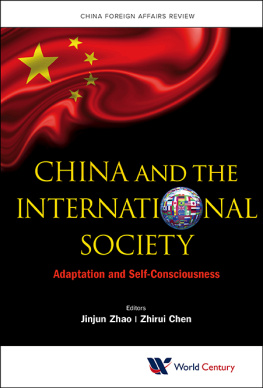China Economic Transition Research
China has experienced radical economic and societal change since the initiation of the reform process in 1978. These changes have greatly affected various aspects of peoples livelihoods and inspired scholars to reconsider the relationship between planning and the market in China.
This book is a collection of fourteen papers by Zhao Renwei, the former director of the Institute of Economics of the Chinese Academy of Social Sciences. First, the author discusses his views on the relationship between planning and the market in Chinese society before subsequently going on to examine the changes in economic systems of the intervening decades, using examples and economic models, and then drawing conclusions for policy.
The book will appeal to students and scholars interested in Chinas social and economic reform.
Zhao Renwei is a member of the Chinese Academy of Social Sciences (CASS), president of the Cairncross Economic Research Foundation, former director of the Institute of Economics CASS and former chief editor of the Economic Research Journal. He has been a visiting scholar at St. Antonys College of Oxford University, Columbia University, University of California, Riverside (UCR), University of Duisburg and All Souls College, Oxford, since the 1980s. He has won the 1st, 2nd and 6th Sun Yefang Fiscal Science Award.
China Perspectives
The China Perspectives series focuses on translating and publishing works by leading Chinese scholars, writing about both global topics and China-related themes. It covers Humanities & Social Sciences, Education, Media and Psychology, as well as many interdisciplinary themes.
This is the first time any of these books have been published in English for international readers. The series aims to put forward a Chinese perspective, give insights into cutting-edge academic thinking in China, and inspire researchers globally.
Titles in sociology currently include
Living Conditions and Targeted Aiding Mechanisms of the Urban Underclass in China
Zhu Li, Mao Feifei
The Way to a Great Country
A Macroscopic View on Chinese Population in the 21st Century
Tian Xueyuan
Social Structure and Social Stratification in Contemporary China
Lu Xueyi
Social Construction and Social Development in Contemporary China
Lu Xueyi
Economic Transition and Peoples Livelihood
China Income Distribution Research
Zhao Renwei
Economic Transition and Peoples Livelihood
China Economic Transition Research
Zhao Renwei
For more information, please visit www.routledge.com/series/CPH
This book is published with financial support from the Chinese Fund for the Humanities and Social Sciences.
First published in English 2020
by Routledge
2 Park Square, Milton Park, Abingdon, Oxon OX14 4RN
and by Routledge
52 Vanderbilt Avenue, New York, NY 10017
Routledge is an imprint of the Taylor & Francis Group, an informa business
2020 Zhao Renwei
Translated by Zhang Xiaotong
The right of Zhao Renwei to be identified as author of this work has been asserted by him in accordance with sections 77 and 78 of the Copyright, Designs and Patents Act 1988.
All rights reserved. No part of this book may be reprinted or reproduced or utilised in any form or by any electronic, mechanical, or other means, now known or hereafter invented, including photocopying and recording, or in any information storage or retrieval system, without permission in writing from the publishers.
Trademark notice: Product or corporate names may be trademarks or registered trademarks, and are used only for identification and explanation without intent to infringe.
English Version by permission of China Social Sciences Press.
British Library Cataloguing-in-Publication Data
A catalogue record for this book is available from the British Library
Library of Congress Cataloging-in-Publication Data
A catalog record for this book has been requested
ISBN: 978-0-367-41697-3 (hbk)
ISBN: 978-0-367-81575-2 (ebk)
Typeset in Times New Roman
by Apex CoVantage, LLC
Contents
PART 1
Planning and market
PART 2
Transformations of economic system and development
Guide
Part 1
Planning and market
1
On the relationship between planning and market in a socialist economy
Currently, the Partys work priority is shifting towards socialist modernization. In order to adapt to such a change and to ensure the steady development of our national economy, it is important for us to take stock of the experiences and lessons from the construction of the economy over the past three decades and to seriously reform the management system and its operation and methodology. In order to carry on this reform task, there are many impressively large theoretical and practical issues, which we need to study and resolve. One of the all-encompassing issues of socialist economic management is how to handle the relationship between planning and the market. This article represents a preliminary exploration of this issue.
I.Inevitability of combining planning with the market in a socialist economy
An established perception in the study of socialist political economy holds that since the socialist economy is a planned economy and a capitalist economy is a market economy, a socialist economy is therefore incompatible with the market. This perception would mean the socialist planned economy is a simple and absolute denial of the relevance of the market. Although in China the existence of production of goods and the law of value in a socialist economy have gradually been recognized, the roles of production of goods, the law of value and the market mechanism are still considered as incompatible with the role of planning. It is believed that in areas where planning works, the market mechanism does not work; and vice versa. According to this view, the superiority of socialism cannot be reflected in the use of the market, but only in the restriction or rejection of the market. Socialism can show its superiority by giving planning a greater role and restricting the role of the market. Regarding the market as inherently incompatible with the nature of a socialist economy had a number of negative consequences for our economy. For example:
Production is divorced from demand. Since there is a one-sided emphasis on planning and little attention to the market, what, and how much, businesses produce mainly reflects the mandatory top-down plan and targets but is not designed to take account of societys actual expectations. Theoretically speaking, planned production and production needs should match. However, under socialist conditions, in the absence of a market mechanism, a unified planning center actually cannot faithfully reflect the ever-changing demand for millions of different products. The result would inevitably be that goods produced according to top-down plans would not be what the market wants, and would result in inventory building-up, whereas what the community needs would remain in short supply. Moreover, most products are purchased and distributed by the state in a centralized way, and most production materials needed by businesses are allocated under the national plan. Producers and consumers have no direct relationship, nor do they meet face to face. As a result, the producers do not know the needs of consumers, while consumers have no impact on production at all. The failure of planned targets to actual needs means that there cannot be a flexible response through the market mechanism, and therefore no timely correction can take place. Hence the long-term divorce of production, supply and distribution cannot be resolved.

